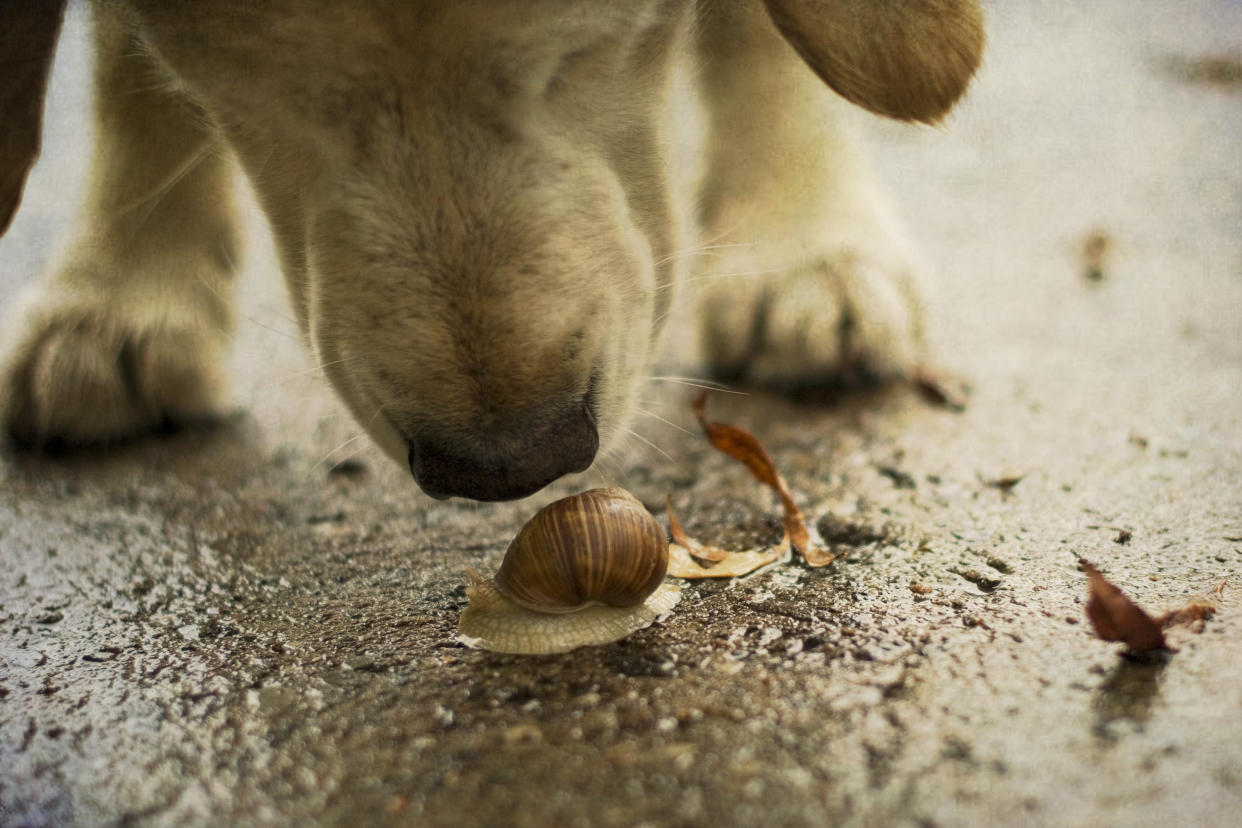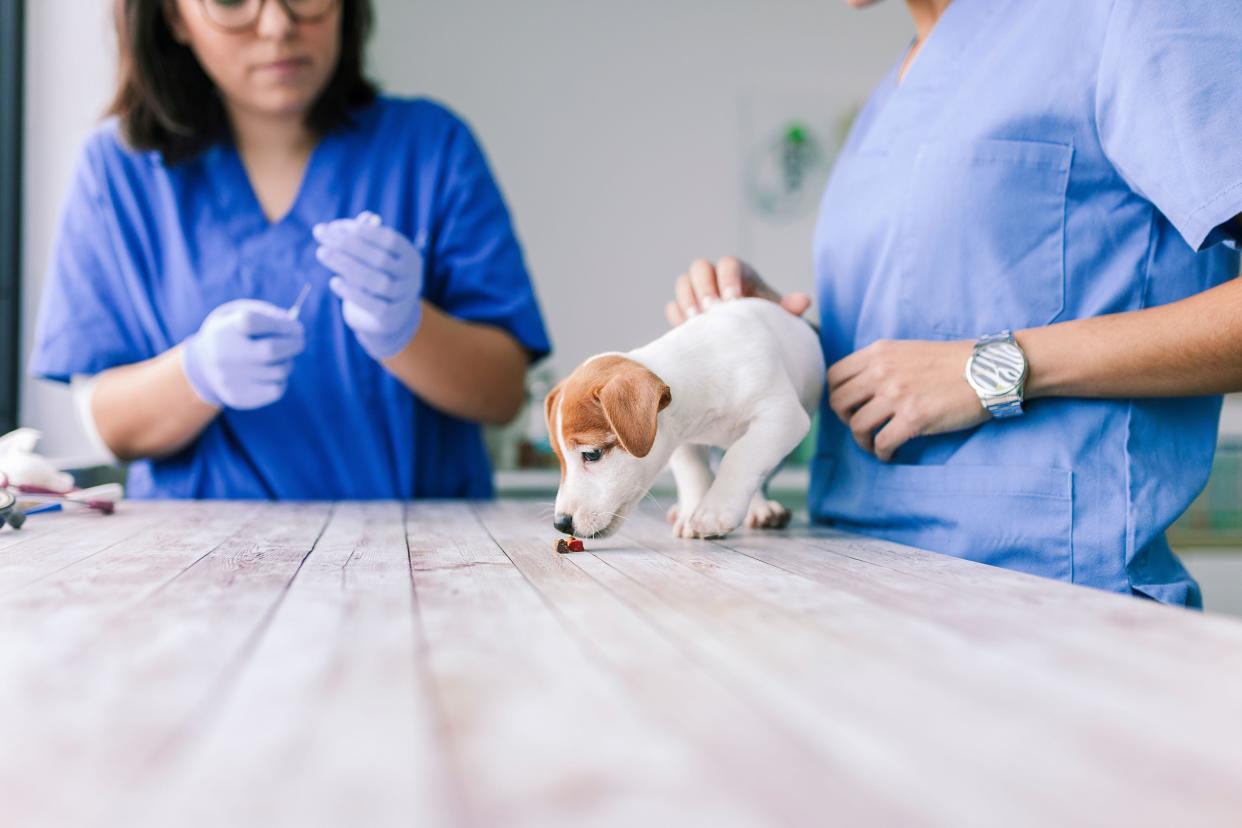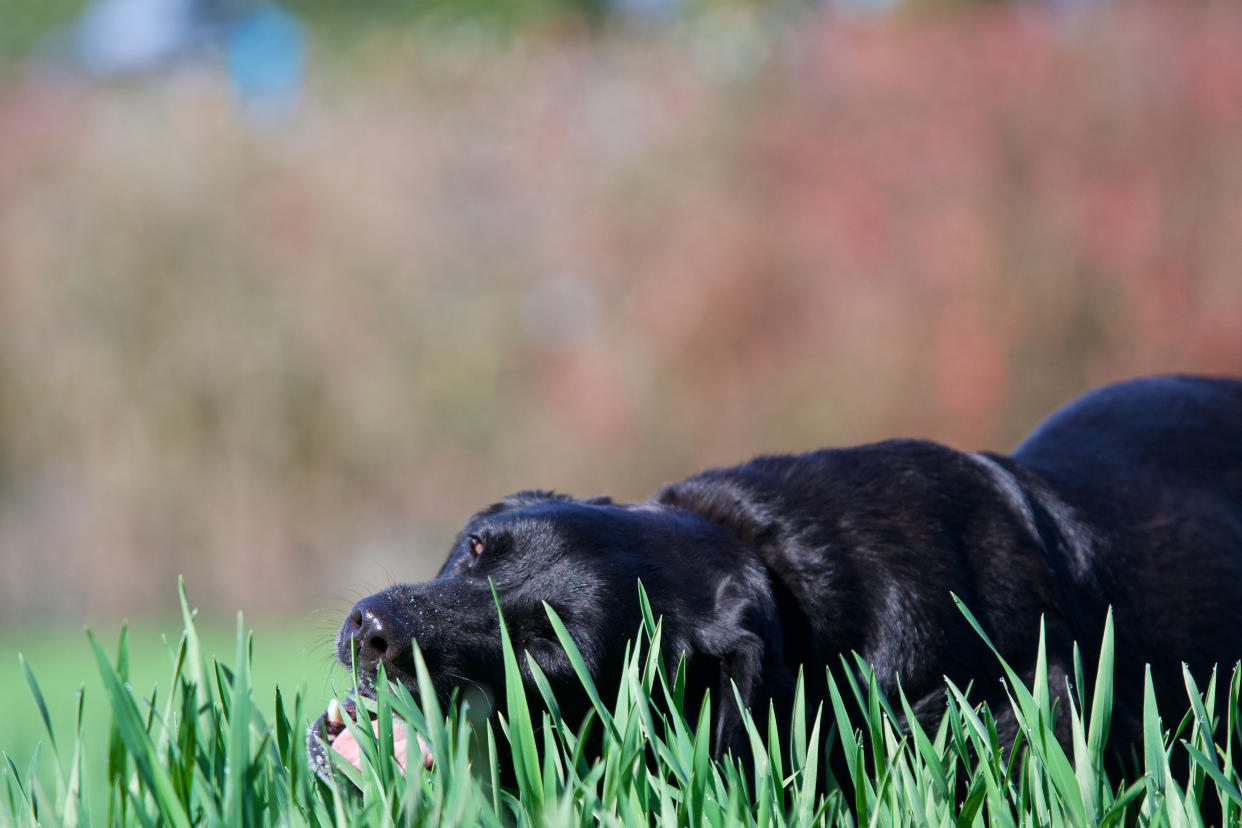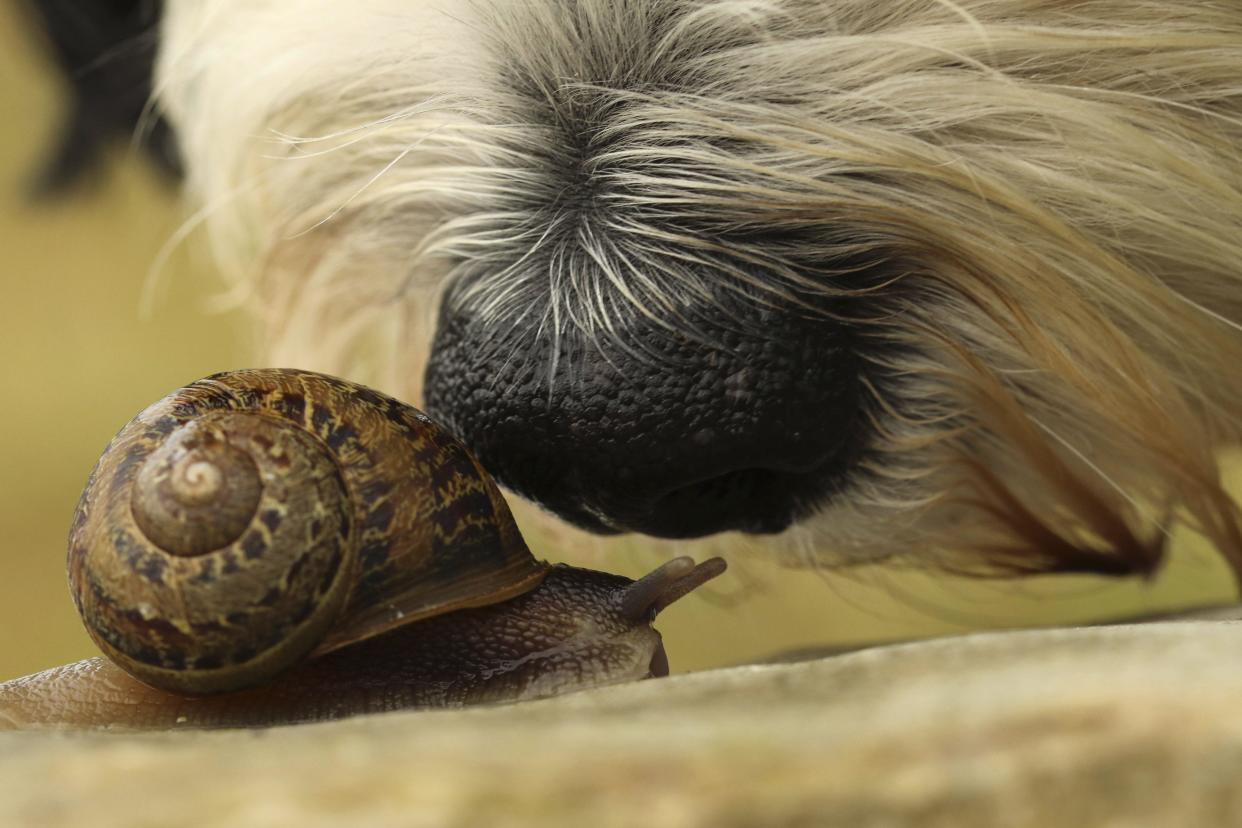Warning for pet owners as lungworm cases in dogs rising across the UK

The UK's pet owners have been warned about a surge in lungworm cases among dogs.
Cases of the disease, which can be fatal for dogs, are on the rise, according to vets.
Lungworm is an infection caused by a round worm parasite and is passed to dogs from infected slugs and snails when they eat them or play with them.
It can also be contracted by dogs from the slugs and snails' slime trail when they eat grass or drink from puddles.
Pet owners can prevent their dog from contracting lungworm through their regular deworming regime.
There are treatments available once a dog has lungworm, but charities say these can be expensive.
Cases of lungworm in the UK are traced through an updated map from online animal resource My Pet And I, run by the Elanco pharmaceutical company, which produces medicines and vaccinations for animals.
This month, the map has shown an increase in reports of lungworm among dogs in the Oxfordshire area.
Cases of lungworm have been reported all over the country, according to the interactive map, which can be updated by pet owners.
According to a survey of 2,000 UK dog owners carried out by Elanco in 2020, only one in three dog owners routinely treat their pet for lungworm.
Veterinary charity the People's Dispensary for Sick Animals (PDSA) told Yahoo News UK on Tuesday that cases of lungworm are increasing.
Read more: How Yahoo News UK is reporting nationwide lungworm cases
- Map reveals lungworm hotspots in Southampton that dog owners need to know (Daily Echo, 1 min)
- Dog owners warned as lungworm 'spreading fast' across UK (East Anglian Daily Times, 1 min)
- Warrington dog owners told to remain vigilant about lungworm spread (Warrington Guardian, 2 min)
PDSA vet nurse Nina Downing said: “Lungworm infection is becoming much more common, and is now a risk to dogs across much of the UK.
"Your dog is at risk of catching lungworm if they eat slugs and snails, which often happens when they eat grass.
“Lungworms, despite its name, can travel around the body and cause breathing difficulties, heart failure, seizures, bleeding disorders, and even death.

“Preventing lungworm is much easier than treating it. If your dog is diagnosed and treated early - before severe symptoms have developed - their outlook is likely to be good.
"However, lungworm infections that cause symptoms such as breathing difficulties and seizures generally have a poor outlook and, sadly, severe lungworm infections can be fatal.
“The best and easiest preventive method owners can take is to ensure their dog’s normal deworming regime includes lungworm protection."
She added: “Treating a lungworm infection can be expensive, especially if your dog needs intensive care. It’s very important to speak openly to your vet about your finances, the cost of treatment, as well as what you think is right for your dog."
What is lungworm?
Lungworm is an infection caused by the round worm parasite Angiostrongylus Vasorum (AV), which can travel around the dog's body through their blood vessels and affect the heart, lungs and other parts of the body.
Lungworm can cause dogs to suffer with breathing difficulties, heart failure, seizures and bleeding disorders. It can be fatal.
What are the symptoms?
Lungworm symptoms in dogs vary but they can include coughing, breathing problems, not wanting to exercise, loss of appetite, vomiting or diarrhoea and weight loss.
If a dog gets a minor injury, such as a small cut, it may bleed for longer if they have lungworm.
How do dogs get lungworm?
Dogs can pick up lungworm, after eating infected slugs and snails or licking their slime trails. They can also be infected by eating grass or drinking water outside where slugs and snails have been.
The lungworm larvae grow inside the dog and adult lungworm move through their body to live in the heart and blood vessels.

Lungworm cannot be passed from dog to dog but they will pass the larvae in their faeces, which then infects more slugs and snails, which are eaten by more dogs, helping the disease to spread.
PDSA vet nurse Nina Downing said: "Dogs catch lungworm by eating infected slugs and snails, which often happens by accident whilst eating grass or drinking outside."
How is lungworm treated?
Most dogs will recover from lungworm if it is caught and treated early, according to the Blue Cross animal welfare charity. If left untreated, it can cause internal bleeding and organ failure in severe cases.
Pet owners can give their dogs regular deworming treatments through a prescription from their vet - these can often cover lungworm.
Downing said: "We’d always recommend taking your own water and dog bowl out with you on walks, to avoid your dog drinking from shared water bowls, or from puddles."

She added: “Consider insuring your dog as soon as you get them, before any signs of illness start and make sure you maintain a regular worming routine, which includes lungworm treatment.
"You will need to obtain this from your vet as treatment for lungworm is only available on prescription. This will ensure you have all the support you need to care for them.”
Mild infections usually only need lungworm treatment and medication to go home with, but if a dog is seriously ill they may need intensive care in a veterinary hospital.
Watch: People warned not to buy pugs due to serious health issues


